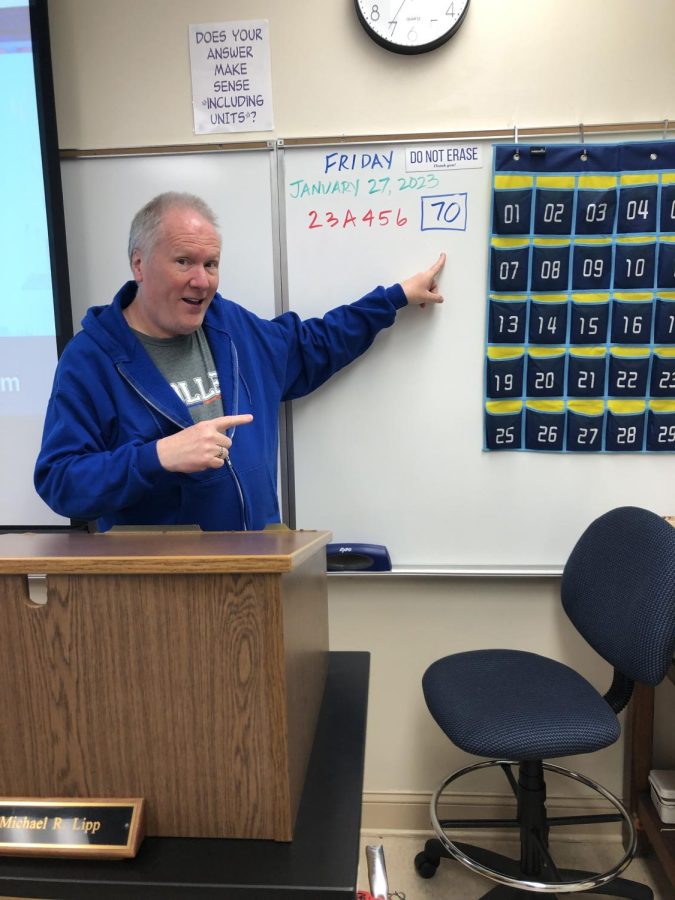Lipp to Retire after 39 Years
This year, physics teacher Michael Lipp will conclude an expansive 39-year career in education. Lipp began teaching chemistry and earth science at Englewood High School in 1984, before becoming one of the inaugural faculty members at Douglas Anderson School of the Arts (DA) in 1985.
While at DA, Lipp taught, “just about every science class and just about every math class all the way through AP Calculus,” as well as musical theater. He then spent two years working in computing and three years at Paxon School for Advanced Studies before returning to DA, where he stayed until his retirement from the public school system after 33 years in 2017.
A job offer from Bolles led Lipp back into teaching, which was appealing because “You don’t have to worry about standardized testing. Classes are smaller. The students are more focused academically, at least the ones I teach…more of a family feel than the public schools.”
While he originally planned to be a physician or biologist, Lipp found a love for teaching as a lab teaching assistant during his college and graduate school years at Trinity College and Vanderbilt University, respectively. “I found as I was doing the teaching assistantships that I liked that more than research in the lab. I didn’t care much for that research and still don’t,” Lipp said. “Once I started doing teaching assistantships in college, I realized that teaching was the thing I wanted to do.”
In addition to science, Lipp was also involved in band, chorus, and theater in high school and college. “I’ve always been involved in theater and music,” he said. Lipp often combines his artistic and scientific interests through projects like his performance as Galileo Galilei on February 28th, whom he researched on his trip to Italy on an Ottenstroer Grant from Bolles.
With his newfound free time, Lipp plans to travel more, as well as continue playwriting and theater. Other possibilities include volunteering at the zoo or the planetarium, as well as improving his skill on the piano and guitar.
Throughout his teaching career, Lipp said that his most valuable takeaway has been, “students will rise to your level of expectation. Try not to lower my expectations. Keep the expectations high, and students will usually rise to it.” He also values fairness in the classroom, saying, “If I want students to believe anything of me, it’s less of what they learned, and more that I was fair.”
“Once I started doing research assistantships in college, I realized that teaching was the thing I wanted to do.” – Mr. Lipp
Lipp also enjoys hearing from former students who say “that their college physics class is so much easier, because they had this one. They see other physics students at the college struggling terribly, and they don’t have to struggle.” He also reflected on the number of students he has taught, which he estimated to be about 5000 or 6000 over his career, owing to its duration. “I made the decision to give it this year and that’s it,” he said. “39 I thought was enough.”



